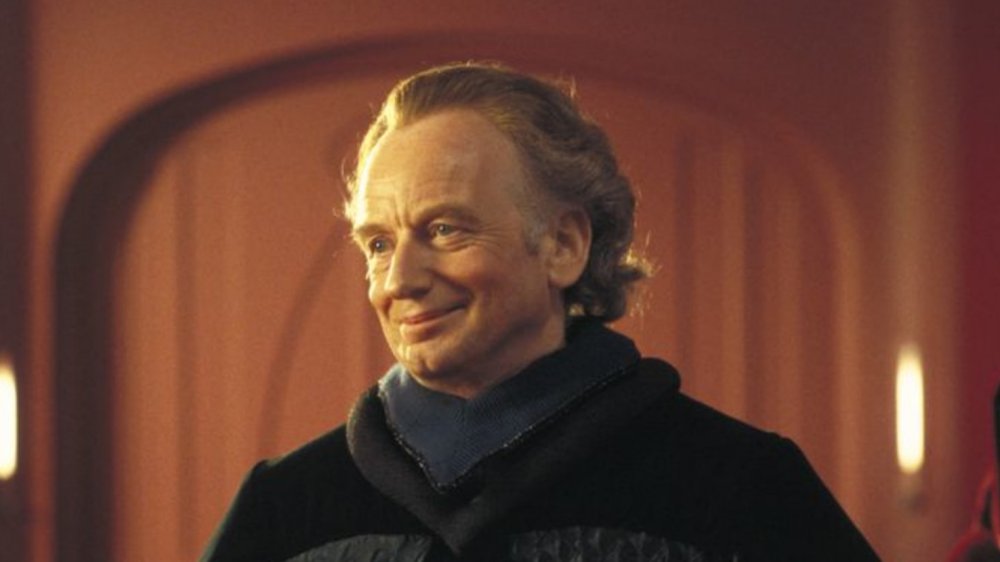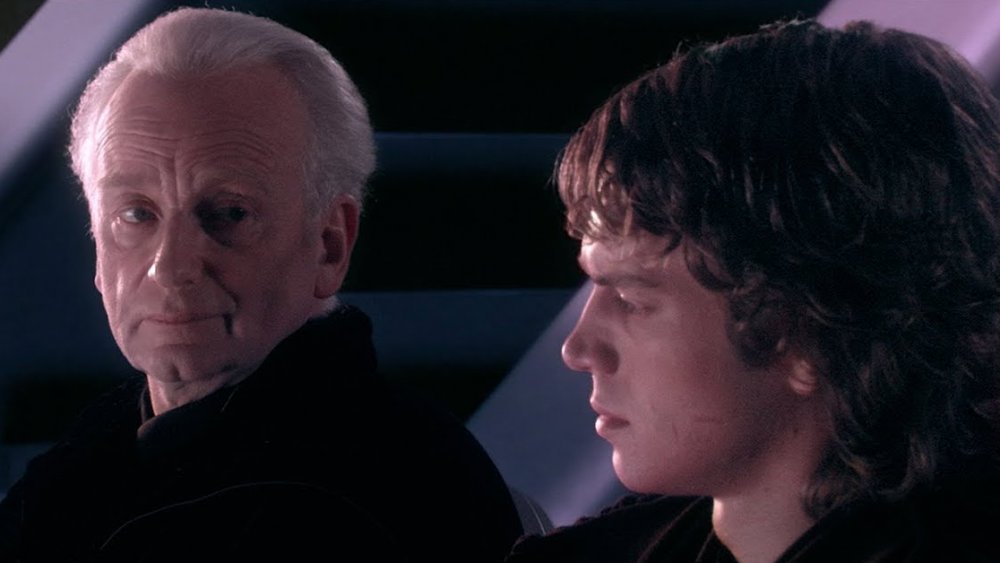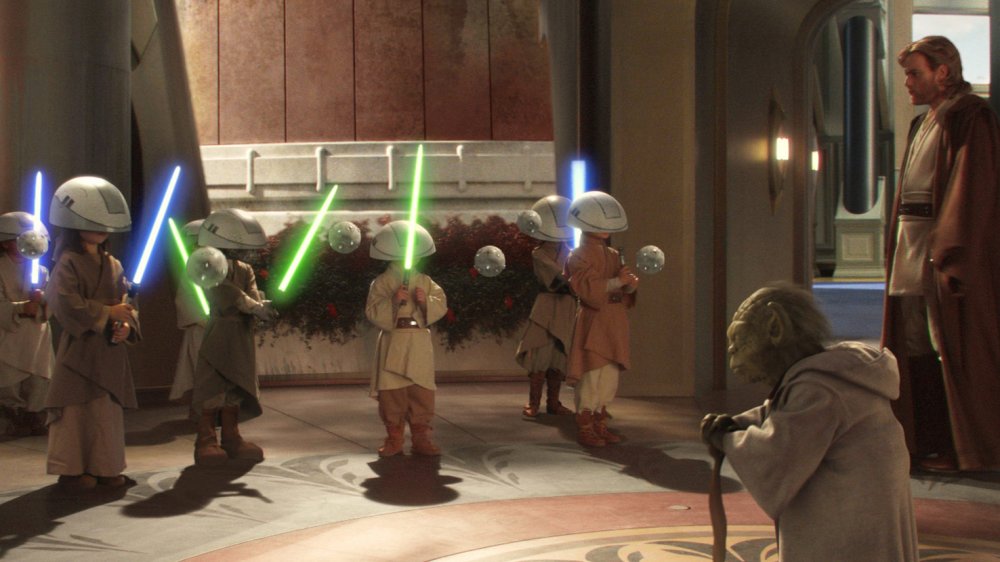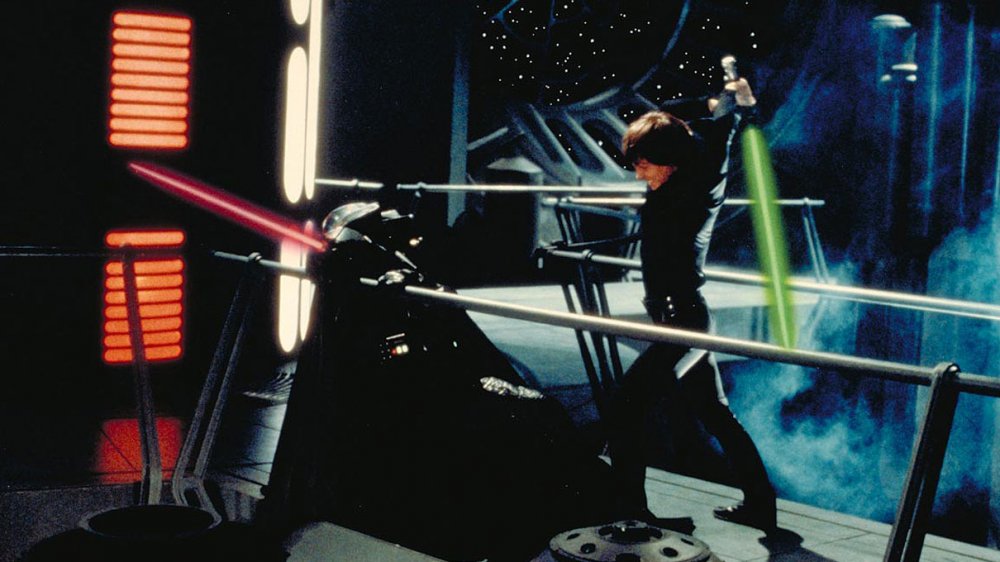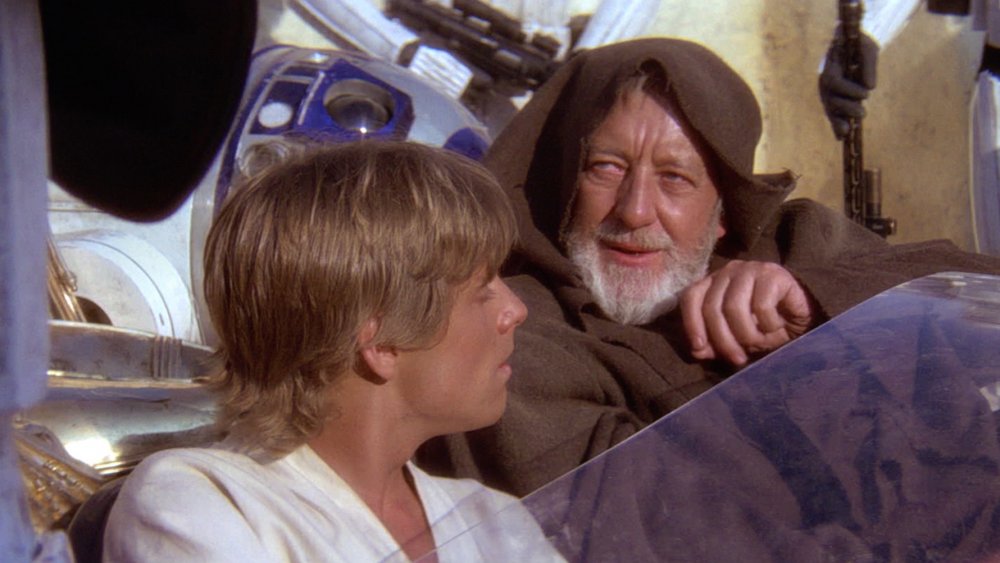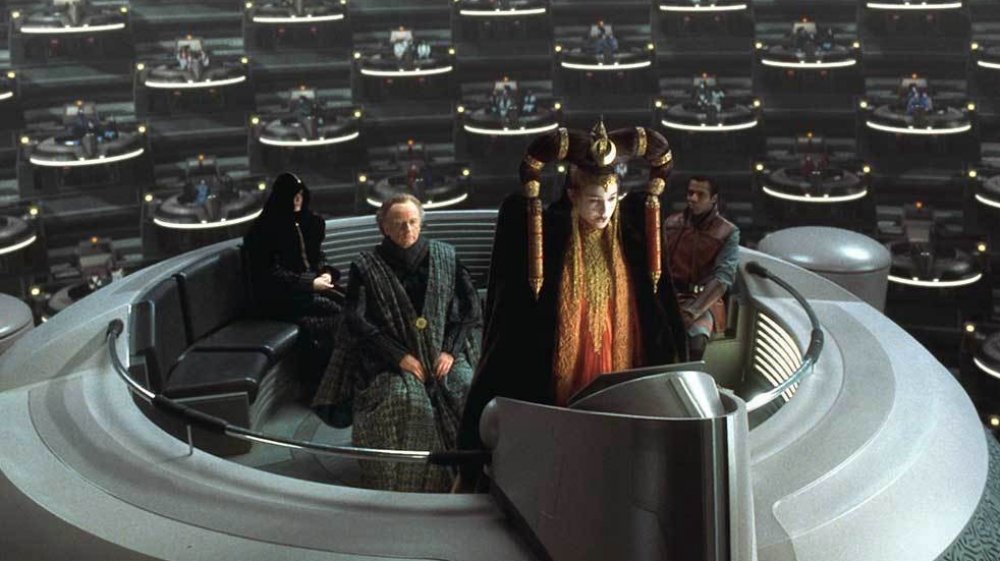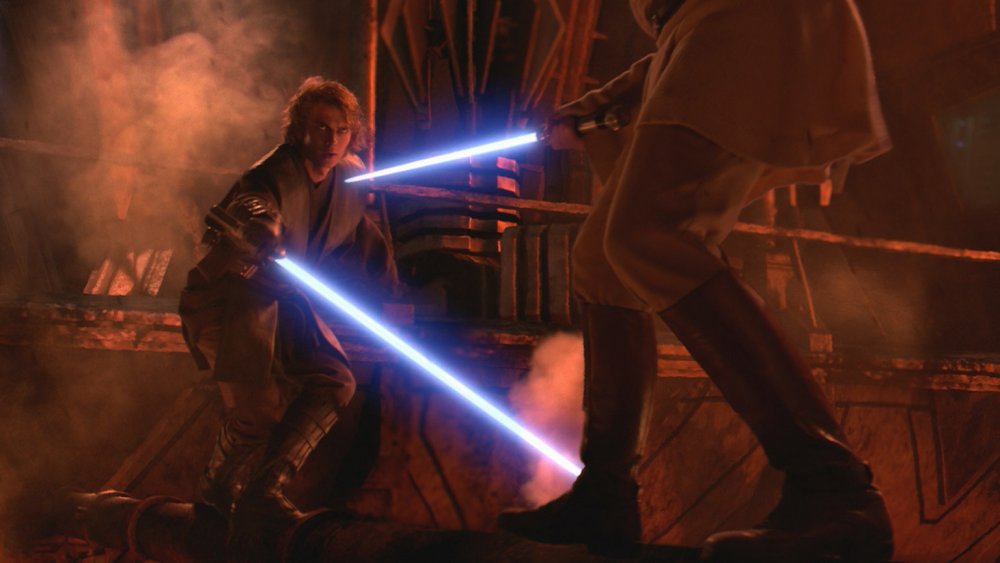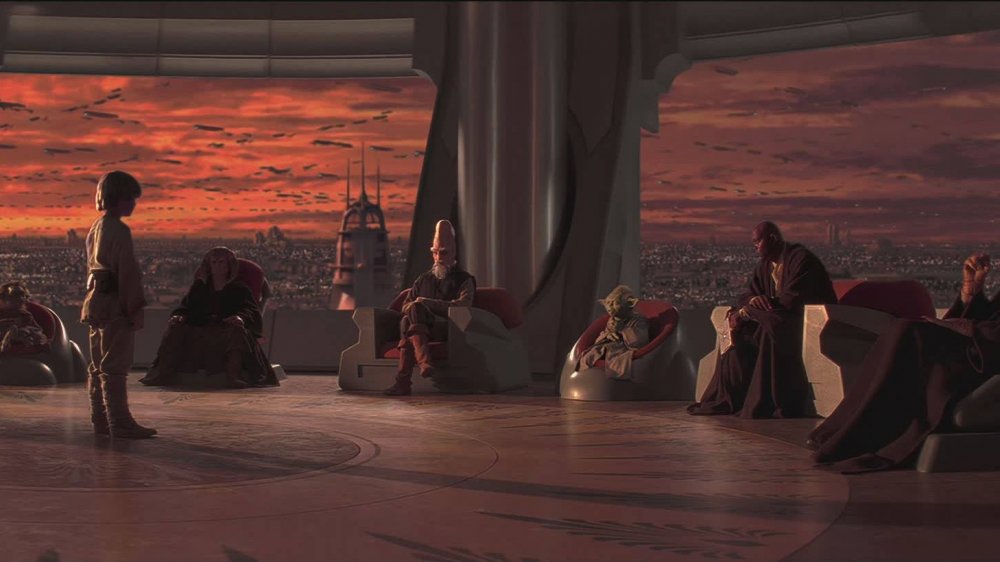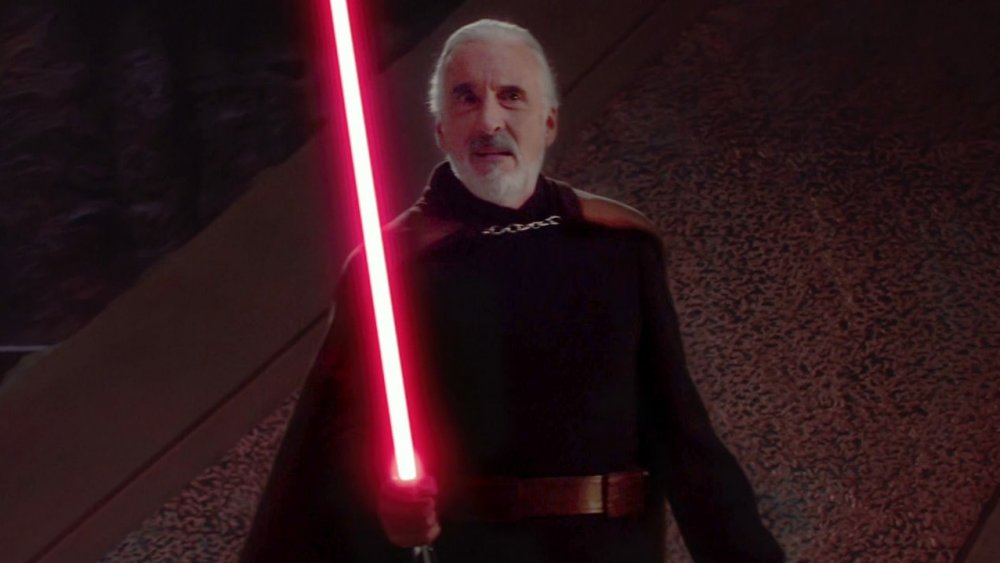Times The Sith In Star Wars Were Actually Right
The Sith are some of the most ruthless, yet complex villains in cinema. Darth Sidious manufactured wars to gain political power and plunged an entire galaxy into a dark age. Darth Vader betrayed the Jedi, committed genocide, and even chopped his own son's hand off. (Yikes.) But like all complicated villains, the Sith occasionally made really good points.
The Sith may have rightfully earned their bad name, but that doesn't mean they were wrong about everything. In fact, the Sith actually have some great commentary about human nature, politics, and current events. Count Dooku gives his reasons for leaving the Jedi Order, Anakin explains why he dislikes the Republic, and even the Emperor himself has some wisdom to share. While most of the Sith went on to commit terrible acts, the good points they made are relevant to our own society, from pointing out the flaws in democracy to exposing Jedi hypocrisy.
All who gain power are afraid to lose it
"All who gain power are afraid to lose it." This brilliant quote sounds like it would come from an altruistic character like Luke Skywalker or Qui-Gon Jinn, but it actually comes from Sheev Palpatine, a.k.a. the Emperor. Palpatine drops this truth bomb on Anakin during the opera scene in Revenge of Sith. During their conversation, Palpatine subtly demonizes the Jedi, intending to turn Anakin against them, but along the way, the Dark Lord actually makes a really good point about human nature in politics.
Everyone, including the Jedi, is afraid to lose the power they gain. When Palpatine legally gains emergency power from the Senate, the Jedi immediately plot against him. The Jedi order commands Anakin to get close to Palpatine just so they can spy on him. And check out this exchange between two Jedi masters from Revenge of the Sith:
Ki-Adi-Mundi: If [Palpatine] does not give up his emergency powers after the destruction of Grievous, then he must be forcibly removed from office.
Mace Windu: It will be tricky. The Jedi Council will have to take control of the Senate to ensure a peaceful transition to a new government and a new leadership for the Republic.
So a senator doesn't immediately give up his emergency powers and the Jedi's plan is to "take control of the Senate" and literally institute a new government? Sounds a bit like the Jedi are afraid of losing their political influence.
The Jedi indoctrinated their students
As some Sith have pointed out, there are some serious problems with the Jedi's education program. For one, it seems the Jedi try to only find students who are very young and impressionable. When the Jedi council considers training Anakin, Mace Windu says he's too old — and Anakin was only nine at the time. Not only that, but the Jedi ask their students to devote their entire lives to the Jedi cause, even forbidding them from falling in love. Anakin takes such an issue with this rule that he disregards it and secretly marries Padme.
At one point, Palpatine reveals that the Jedi are highly selective about what they teach their padawans. In fact, it seems the Jedi even censor really important history and science that could advance society. When talking to Palpatine, Anakin admits he never heard of the story of Darth Plagueis the Wise. Palpatine rightly responds by saying, "I thought not. It's not a story the Jedi would tell you." Plageius apparently found a way to prevent people from dying by using the Force, which sounds like a groundbreaking discovery. Anakin is naturally curious, and can you blame him? Why would the Jedi hide this from the universe? Anakin asks if it's possible to learn this power, to which Palpatine says, "Not from a Jedi."
Passion does increase strength
One of the key differences between the Sith and Jedi is the use of passion to accomplish their respective goals. As Anakin puts it, "The Sith rely on their passion for their strength." In particular, the Sith tap into their own anger to win battles and become more powerful, which was standard education for Sith apprentices. As Palpatine would teach Anakin, "I can feel your anger. It gives you focus, makes you stronger." The Jedi were opposed to this approach in battle, at least in their teaching. Yoda regularly warned Anakin and Luke about the dangers of tapping into anger.
But here's the thing: the Sith were absolutely right about this. Throughout the Star Wars saga, fighters increased their power through passion and anger, including the Jedi. An example is when Luke fights Darth Vader in Return of the Jedi. Previously, Luke lost to Vader, but this time Luke defeats him in a fit of rage. Darth Vader teases that he might turn Leia to the dark side, which brings Luke out of the shadows in fury. After angrily slamming his lightsaber against Vader's, he severs his father's hand — only to bring himself back from the brink of darkness in the nick of time.
The Jedi lie quite a bit
The Sith regularly point out that the Jedi are not as honest as everyone thinks they are. During the battle between Obi-Wan and Anakin on Mustafar, Anakin says, "Don't lecture me, Obi-Wan! I see through the lies of the Jedi." Which particular lies did Anakin see through? Well, take your pick.
The Jedi lied to the Senate about their weakening power. In Attack of the Clones, Mace Windu says, "I think it is time we inform the Senate that our ability to use the Force has diminished." Yoda responds, "Only the Dark Lord of the Sith knows of our weakness. If informed the Senate is, multiply our adversaries will." Perhaps the example of lying that Anakin is most familiar with is his own lie as a Jedi, since he secretly married Padme.
But let's talk about the biggest lie a Jedi ever told. In A New Hope, Obi-wan tells Luke that Darth Vader killed Luke's father, which of course sets up one of the most famous plot twists in cinematic history:
Darth Vader: Obi-Wan never told you what happened to your father.
Luke: He told me enough. He told me you killed him.
Darth Vader: No. I am your father.
Naturally, this shakes Luke to his core. Later on, Luke asks Obi-Wan, "Why didn't you tell me?!" Basically, Obi-wan does a bunch of mental gymnastics and claims he never technically lied.
Democracy has significant shortcomings
The prequels showed Star Wars fans what the galaxy was like before the Empire took over. At first glance, it seems like a time of peace and prosperity, but in the words of Palpatine, "The Republic is not what it once was. The Senate is full of greedy, squabbling delegates. There is no interest in the common good." During the invasion of Naboo, the Senate takes its sweet time deciding whether to help the planet. Queen Amidala speaks up, reminding her fellow officials, "I was not elected to watch my people suffer and die while you discuss this invasion in a committee."
Anakin also points out that democracy moves very slowly because of constant arguing, telling Padme, "We need a system where the politicians sit down and discuss the problems, agree what's in the best interests of all the people, and then do it."
"That is exactly what we do," she responds. "The trouble is that people don't always agree. In fact, they hardly ever do."
Granted, Anakin isn't a Sith yet in this scene, but it's fair to say he's transitioning into one and this is an example of Sith thinking. And Padme, having experience as a senator, openly confesses this is a common issue in the Galactic Senate. In her own words, elected officials "hardly ever" agree. Hate the Sith all you want, but they're right to say that democracy isn't perfect.
Good is a point of view
During the prequels, the Republic largely viewed the Jedi as a force for good and the Jedi trained their padawans to believe this. The issue is that the Jedi had their faults, and there are genuine disagreements in society about what good is.
Before becoming the Emperor's apprentice, Anakin initially resists Palpatine's arguments against the Jedi. Anakin insists "The Jedi use their power for good," to which Palpatine counters, "Good is a point of view." Eventually Anakin agrees, and during his battle with Ben Kenobi on Mustafar, he says, "From my point of view, the Jedi are evil!"
It's here that the Sith touch on one of the fundamental problems with the Jedi Order — the Jedi supposedly fight for good, but whose definition of good? The Jedi present themselves as "keepers of the peace," but it seems they're entirely fine with sending a clone army to their death in order to preserve the Jedi council and the Jedi's governmental preferences.
Supposedly, the Jedi are trained to spare life and show mercy. After slaying Count Dooku, Anakin reflects on his decision, saying, "It's not the Jedi way." Yet later in the same movie, Mace Windu attempts to slay the Chancellor, who is at his mercy. Anakin insists that the Chancellor face trial, but Windu continues his assassination attempt anyway.
The Jedi council was undemocratic
In Revenge of the Sith, Anakin tells Palpatine that the Jedi don't trust him. Palpatine responds, "Or the Senate... or the Republic... or democracy, for that matter," which is absolutely on point. Throughout the prequels, the Jedi council repeatedly influence political matters beyond the knowledge of the public and often even the Senate itself. As mentioned earlier, the Jedi mulled forcing Palpatine out of office and taking over the Senate to install new leadership.
However, the deeper problem is that the entire existence of the Jedi council is undemocratic. For one, it seems that the Jedi do not have to answer to any governing bodies and are free to do whatever they like. But at the same time, they regularly meet with senators in private to influence decisions in the Senate. What's more, the Jedi also function as a police force of sorts. To use Mace Windu's words, the Jedi "are keepers of the peace, not soldiers" — even though later in the same movie, he literally fights a war and chops the head off some poor kid's father.
Essentially, the government can't tell the Jedi to do anything, but the Jedi can influence decisions in government and police citizens.
Sometimes you have to leave a failed system
If Count Dooku taught Star Wars fans anything, it's that sometimes you can't fix a system you're a part of. Dooku used to be a part of the Jedi Order, but left because the Jedi would not take him seriously about corruption in the Senate. In Attack of the Clones, Dooku reveals to Obi-Wan that the Dark Lord of the Sith is taking control of the Senate and invites Obi-Wan to eliminate him. But Obi-Wan's response is simply "No, that's not possible. The Jedi would be aware of it."
Dooku may indeed have had a thirst for power somewhere in there too, but it's equally true the Jedi Council and Republic were blind to rampant corruption in the Senate and the influence of the Sith. Even Dooku's apprentice, Qui-Gon Jinn, had to deal with this frustrating blindness. In The Phantom Menace, Qui-Gon tells the Jedi Council that the Sith have returned, but Ki-Adi-Mundi just belts, "Impossible!" And Mace Windu tags on, "I agree. The Sith would not have returned without us sensing it." Instead of trying to change a blind, corrupted system, Dooku left the Jedi Order and the Republic altogether.
